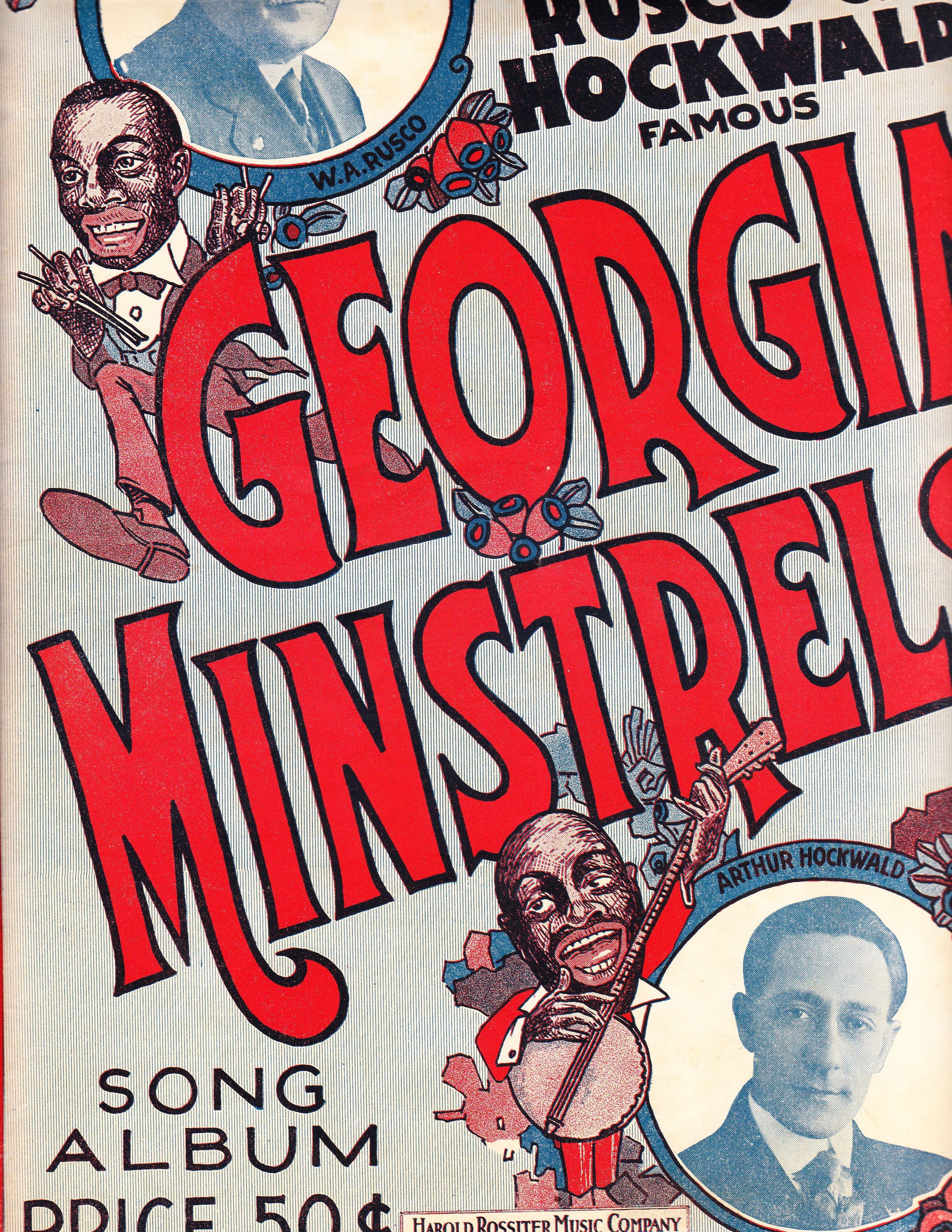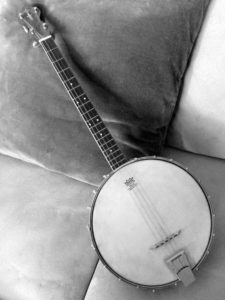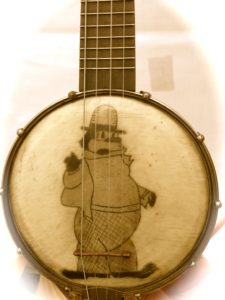This morning, I watched a segment called “Blackface” on the Sunday CBS Morning Show. The show accurately portrayed this time in history as “Unmasking the racist history of blackface”. It reveals the sad and disturbing portrayal of racist stereotype in arts and music in the early 1900s.

Minstrel Show Program from the Early 1900s
I was inspired to write something further here, since I have spent many hours studying the history of music and the origins of music. With the permission of selected public libraries, I was able to utilize a digital collection of historical sheet music Those galleries can be viewed on my website’s classroom at www.fretmentor.com. In addition, you can take a history tour of the origin of the banjo and guitar and some of the artists who have played these instruments. Of course, this vast subject matter is a work in progress.

Old-Time 4 String Banjo
The history of “blackface” and the minstrel show was a disturbing and unacceptable portrayal of how blacks were perceived to live in America. The minstrel show “blackface” actors were both white and black. The CBS program reveals that black minstrel performers dressed in “blackface” masks were given a platform to perform that was acceptable to the white audience. Acceptable today? absolutely not. Yet, it was a part of our history and something that we all should learn from and maintain an open dialog about.
As a banjo player, I find it ironic that many of today’s great banjo players are white Americans and many people incorrectly believe the banjo to be a traditional American instrument . The banjo originated in northwest Africa and through the slave trade was brought to the United States via the Caribbean trade route via the West Indies. It transformed from a frailing or old-time style playing style to the three-finger style that Earl Scruggs and others have made popular today. However, the banjo is a black ancestral instrument.

Old Novelty Banjo
Rhiannon Giddens, a founding member or the Carolina Chocolate Drops, provides a succinct explanation of the history of this wonderful instrument and it’s origin in a clip entitiled “On the Lost History of the Black Banjo“.
You can also learn more by watching David Holt’s interview with Ms. Giddens.
The Minstrel show era ended long ago in the 1920s and the banjo was one of those instruments used in those productions. Today, thankfully the banjo lives on.
